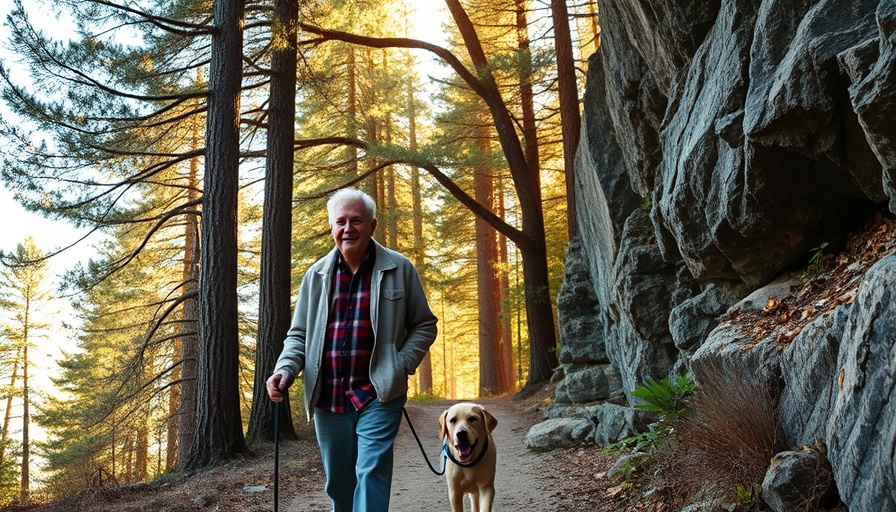
Why Walking in Nature Is Essential for Seniors
As we navigate through life, it’s easy to fall into the trap of indoor activities, especially as technology dominates our day-to-day existence. However, recent studies highlight the importance of venturing outdoors, particularly for older adults. Walking connects us with the world around us, infuses a sense of wellness into our fitness routines, and creates cherished memories.
Memories Made on the Trail
Let’s reflect on personal experiences that make walking unforgettable. For me, a walk with my daughter amidst the stunning formations at Bryce Canyon was transformative. We sang and held hands, overwhelmed by nature's beauty. Another memorable trek was a solitary moment along a serene brook in Massachusetts, where I felt an overwhelming sense of peace. Such experiences remind us that walking is not just exercise; it's an adventure that nourishes our souls.
The Irreplaceable Benefits of Walking
Walking isn’t just about the physical act; the emotional, mental, and cognitive benefits are substantial. Research shows that incrementally increasing your walk—by just a quarter mile—can lower your risk of developing heart disease by a staggering 14%. According to the American Journal of Preventive Medicine, even just ten minutes of walking daily significantly enhances mobility and staves off conditions like arthritis.
Unlocking Physical and Mental Well-being through Nature
Nature walks offer an impressive array of benefits, from enhancing physical health to boosting mental clarity. Studies have revealed that spending even short periods in natural settings can lift mood and lower stress, while 30 minutes of walking twice a week proves effective for cognitive improvement. This aligns with recommendations from health organizations like the CDC, which suggest that older adults aim for at least 150 minutes of moderate physical activity per week.
Thoreau's Wisdom: Embracing the Sauntering Spirit
Famed nature enthusiast Henry David Thoreau believed in the importance of sauntering through nature, asserting that “I think that I cannot preserve my health and spirits unless I spend four hours a day sauntering through the woods.” His eloquent reflections emphasize the notion that walking is as much about the journey as it is about the destination—a shift away from hurried ambition to a more mindful, contemplative connection with our surroundings.
Connecting with Nature for Lasting Impact
As we increasingly gravitate toward screens and urban living, notably amid the pandemic, prioritizing time in nature is crucial. Psychological research underscores that connection with the natural world is associated with improved mood, lower stress, and a greater sense of meaning in life. Engaging in outdoor activities fosters not just a healthier body but a healthier mind.
Becoming Inspired: The Call to Action
Make it a goal to integrate walking into your daily routine. Whether it's a stroll around the park or a nature hike, the power of walking far exceeds mere exercise; it’s a pathway to mental clarity and emotional resilience. Why not share your favorite walking route or cherished memory in the comments? Your experiences may inspire fellow readers to step outside and explore the wonders that await.
Conclusion: Embrace the Outdoors
As Michael J. Tougias, New York Times bestselling author, suggests, walking can refresh our spirits and critically connect us with the natural world. So lace up your walking shoes and embark on an adventure that could change your outlook. Remember: every step takes you closer to well-being.
 Add Row
Add Row  Add
Add 


 Add Row
Add Row  Add
Add 

Write A Comment